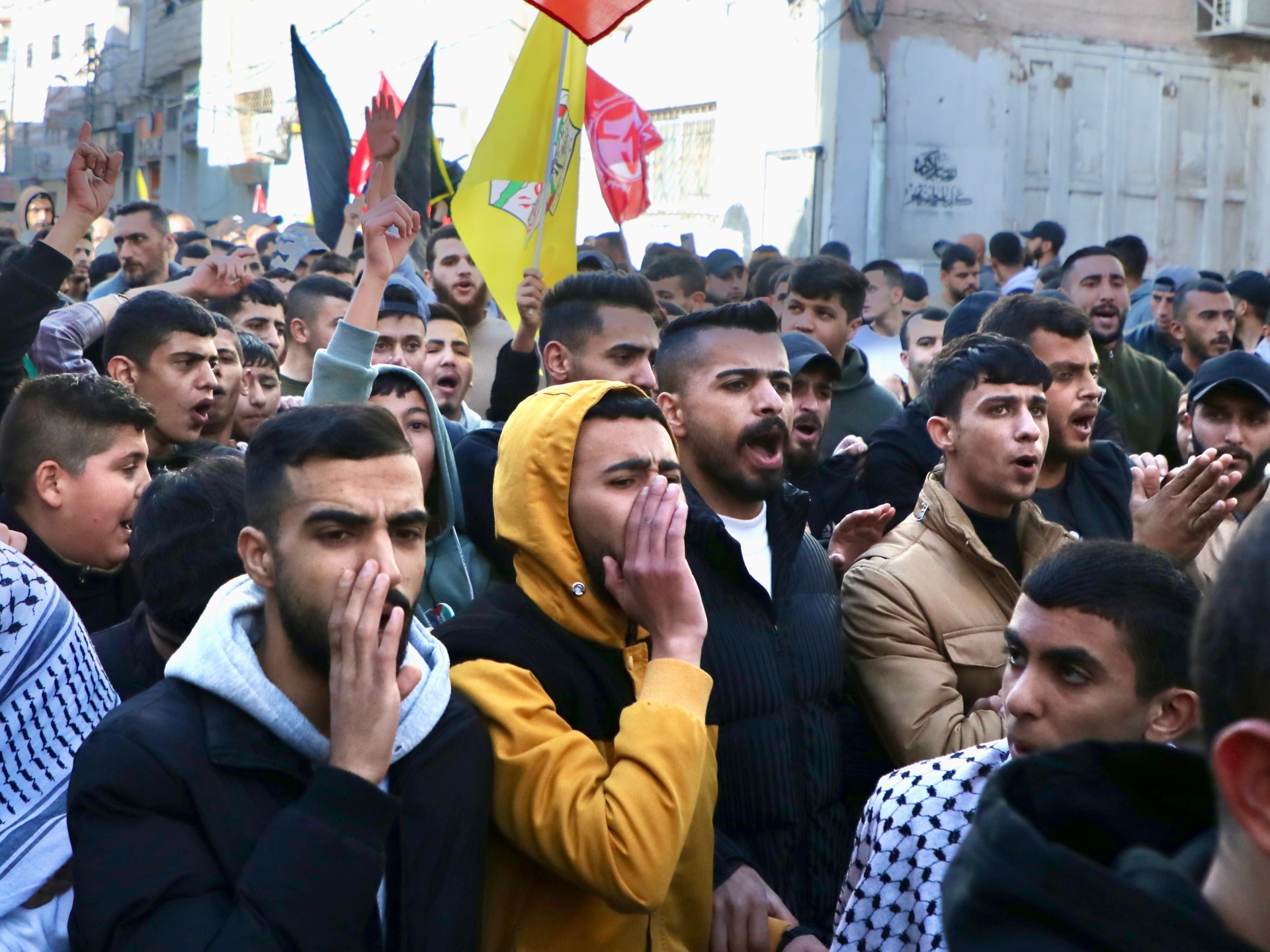
Doctors and politicians say the Israeli raids on the Nour Shams and Al-Fawwar refugee camps followed a pattern of deadly attacks that have killed more than 300 people in the West Bank since October 7.
Al-Fawwar, occupied West Bank — It was one o'clock at night when the injured began arriving at Thabet Thabet Governmental Hospital in the city of Tulkarm.
Dr. Iyad Al-Akkad, the hospital's medical director, said that six of them were all seriously injured. These were victims of an Israeli bombing on the Nour Shams refugee camp in Tulkarm, during a raid that began on the night of December 26 and continued until the early hours of the next day.
This was the second time within 24 hours that Israeli forces stormed the camp, entered several homes, and dropped at least two bombs, including on an industrial facility. Israeli soldiers – both in the occupied West Bank and in the Gaza Strip – are often accused of not allowing ambulances to reach the wounded immediately. This is what happened in Nur Shams as well, witnesses and doctors say, where the six men were bleeding within two hours.
When they were taken to Akkad Hospital, it was too late to save them.
The six join a growing list of Palestinians killed in the West Bank by Israeli soldiers and illegal settlers since October 7, when a Hamas attack on southern Israel sparked a deadly retaliatory war centered on, though not limited to, Gaza. Since then, Israeli bombing and artillery attacks have killed more than 21,000 people in Gaza, while Israeli soldiers and settlers have killed more than 300 people in the West Bank. At least 56 people were killed in Tulkarm Governorate itself, according to the Shirin Observatory, a non-profit group that tracks killings and arrests by Israeli forces.
Tens of thousands were injured in Gaza and the West Bank. Shortly after the six victims of the Israeli bombing arrived on Nour Shams early on December 27, several other Palestinians who had sustained injuries as a result of the attack were transferred to Thabet Thabet Governmental Hospital. Three of them sustained serious injuries to the upper parts of their bodies.
They all have horrific stories involving doctors.
Radwan Balbala, head of the Tulkarm Doctors Syndicate, said that a soldier stabbed one of the victims in the neck while he was being transported by ambulance to the hospital. Others said they were beaten in ambulances.
“They were told: ‘We don’t want you to get to the hospital and survive,’” Balebla told Al Jazeera.
Just hours later, Israel launched another raid, this time on the Al-Fawwar refugee camp near Hebron. As Israeli forces entered homes and occupied the streets for hours, they faced confrontations with local residents and responded with gunfire.
Ahmed Muhammad Yaghi, 17 years old, and Ibrahim Majid Al-Titi, 31 years old, were martyred. Ambulance crews in the camp provided first aid to them and transferred them to Yatta Governmental Hospital, but they died as a result of their serious injuries. Six other wounded were transferred to hospitals for treatment.
In an interview with Al Jazeera, the representative of the Fatah movement in Al-Fawwar camp, Muhammad Abu Al-Eish, said that Israeli forces storm the camp on an almost daily basis. The Israeli army has also closed the entrances to the camp since October 7, impeding the movement of Palestinians by preventing entry and exit. Meanwhile, amid increasingly frequent raids, the number of detainees also rose to 100 in Al-Fawwar.
Abu Al-Eish said that Israel deployed snipers inside buildings and homes during the raid this week. But he added, “Israel is wrong if it thinks it is scaring the people of Al-Fawwar, especially its children.” “No attack will ever happen.”

“Travel specialist. Typical social media scholar. Friend of animals everywhere. Freelance zombie ninja. Twitter buff.”





More Stories
Macron rejects left-wing bid to appoint PM before Olympics
Dogs can smell human stress and make decisions accordingly, study says: NPR
Hamas and Fatah sign declaration to form future government as war rages in Gaza